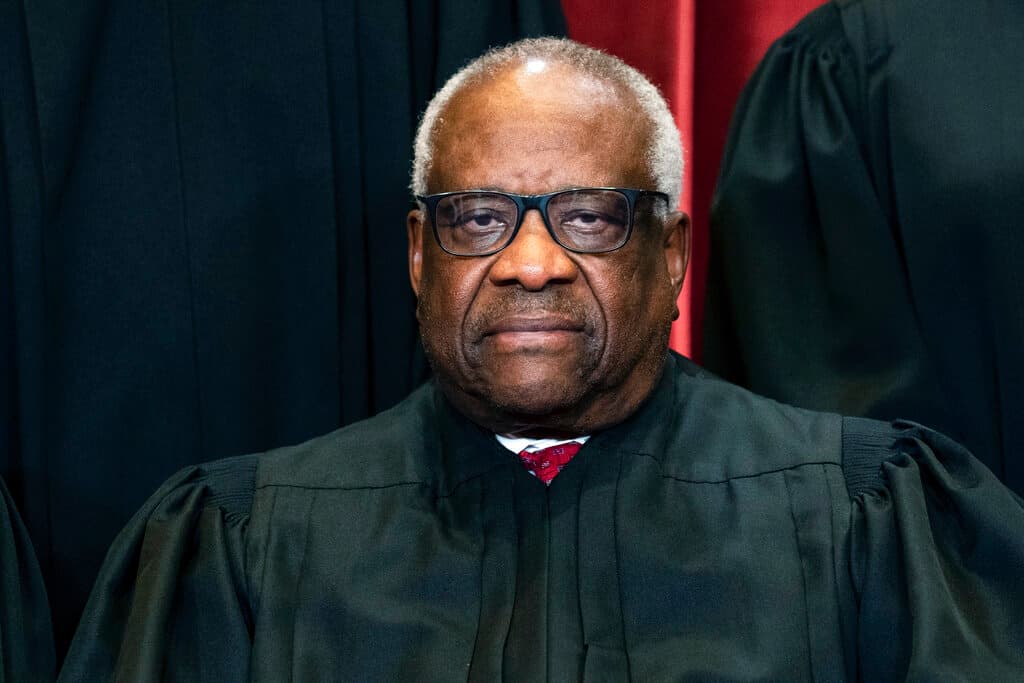New York Prepares To Defy the Court in a Civil Rights Case
Hochul and Adams are already circling the wagons, pointing to potential loopholes in Justice Thomas’ opinion that could enable the Empire State effectively to nullify the ruling.

The question in the wake of the Second Amendment victory at the Supreme Court today is how far New York City and State politicians will go to defy the ruling. Mayor Adams and Governor Hochul have already signaled resistance, even if they haven’t channeled President Jackson’s declaration spiting the high court’s ruling against him in the Cherokee Indians case by saying “John Marshall has made his decision, now let him enforce it.”
Justice Thomas’ ruling today amounts to as full a vindication of the Second Amendment as advocates could have hoped for. “We know of no other constitutional right that an individual may exercise only after demonstrating to government officers some special need,” he wrote. “That is not how the First Amendment works when it comes to unpopular speech or the free exercise of religion.” Nor the Sixth Amendment, he added — nor any other.
Justice Thomas concludes: “It is not how the Second Amendment works when it comes to public carry for self-defense.” That ought to be the death knell for New York’s scheme requiring residents to apply to a city or state official and prove “proper cause” for permission to carry a gun outside the home. It’s a vindication for law-abiding New Yorkers who have sought for years to exercise this constitutional right.
Not so fast, though, say Ms. Hochul and Mr. Adams. Instead of embracing the civil liberty promised to New Yorkers by the high court, and devising ways to expand licensing so responsible residents can begin exercising their Second Amendment rights across the state, the anti-gun duo are already circling the wagons, pointing to potential loopholes in Justice Thomas’ opinion that will enable the Empire State to effectively nullify the ruling.
The Governor and Mayor are seizing on the idea of “sensitive places” where the Second Amendment won’t apply. Justice Thomas’ ruling notes “schools and government buildings,” along with “legislative assemblies, polling places, and courthouses,” are places “where weapons were altogether prohibited.” He concludes “modern regulations prohibiting the carry of firearms in new and analogous sensitive places are constitutionally permissible.”
Even so, Justice Thomas warns against pushing this too far. There is, say, “no historical basis for New York to effectively declare the island of Manhattan a ‘sensitive place,’” he writes, “simply because it is crowded and protected” by the NYPD. Count on “sensitive places” to be the new arena for Second Amendment jurisprudence in New York and other states, like California and Massachusetts, whose gun licensing schemes are overturned today.
In addition to misusing the idea of “sensitive places” to thwart the exercise of Second Amendment rights, the licensing process itself offers an avenue for mischief by the city and state. Mr. Adams today announced plans to revise “our application process to ensure that only those who are fully qualified can obtain a carry license.” He says such measures are necessary because “we cannot allow New York to become the Wild West.”
Similarly, Ms. Hochul said today she intended to convoke the legislature next month to find ways to skirt the Supreme Court’s ruling, which she called not “just reckless” but “reprehensible.” She announced her intention to “change the permitting process,” adding: “We are also going to create a higher threshold for those who want to receive a concealed carry permit.” Such measures appear designed to violate the spirit of the court’s ruling.
The fear-mongering stoked by Mr. Adams and Ms. Hochul strikes us as deeply irresponsible, especially in light of findings by gun researcher John Lott about the minuscule incidence of crimes committed by licensed gun owners. These Democratic politicians are also overlooking the need for New York residents to carry a handgun for self-defense. It’s a point that Justice Samuel Alito marked in his concurrence.
“New York’s solicitor general was asked about an ordinary person who works at night and must walk through dark and crime-infested streets to get home,” Justice Alito writes. What if this person had “pleaded” with a state official for a carry permit because there “have been a lot of muggings in this area, and I am scared to death”? Replied the Solicitor General: “‘in general,’ no.” Let’s hope the end of that regime starts today.

